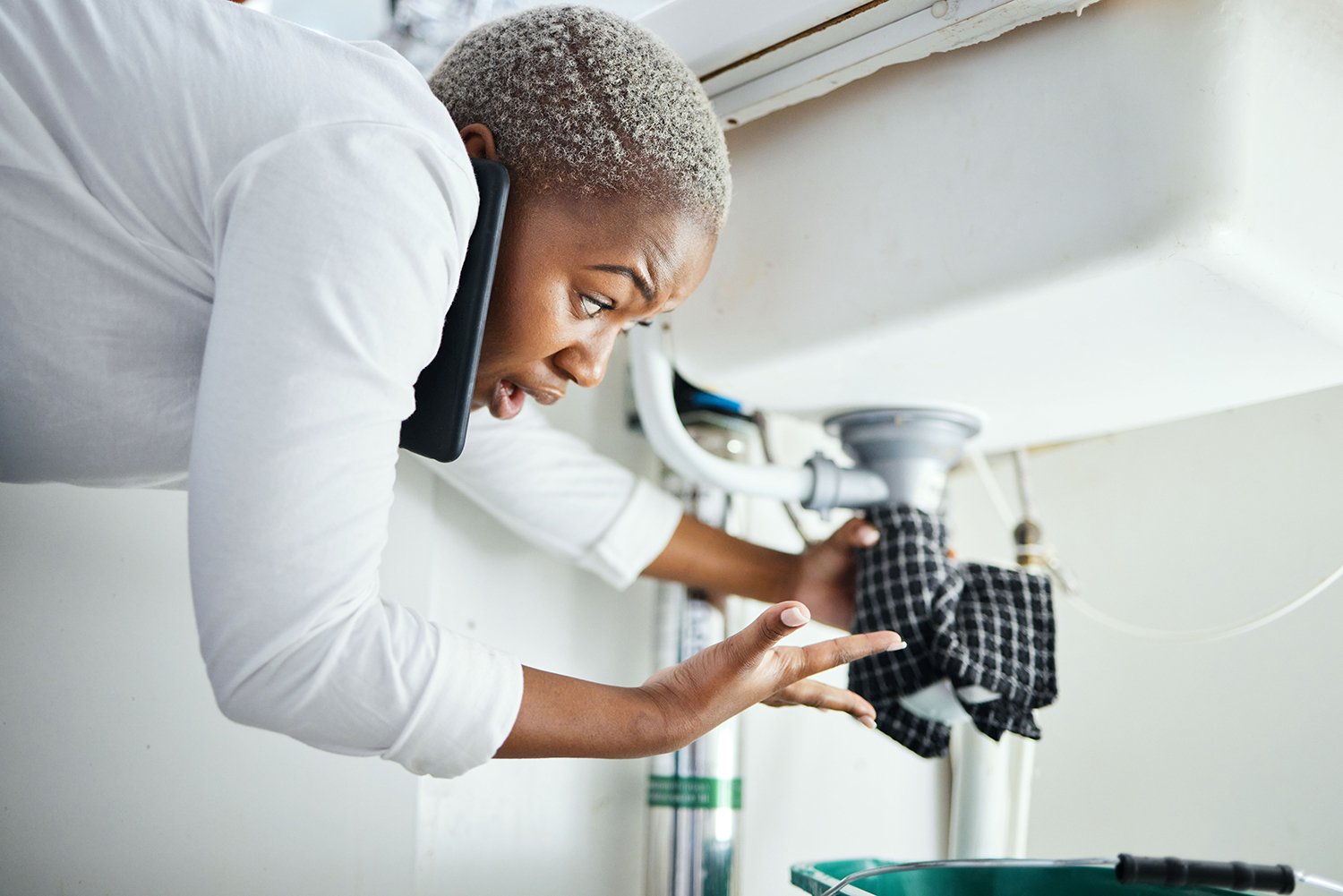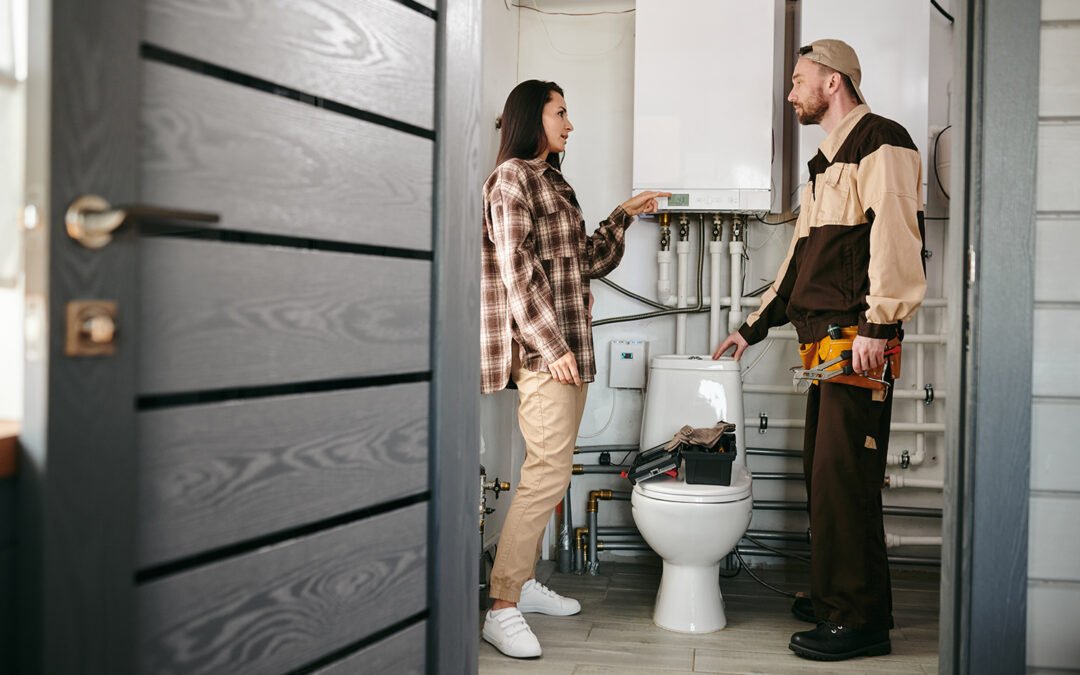Preventative maintenance is a crucial aspect of managing any plumbing system, whether in a residential, commercial, or industrial setting. Regular maintenance helps to identify and resolve minor issues before they escalate into costly repairs, ensuring that plumbing systems operate efficiently and reliably. In this blog post, we’ll explore the benefits of preventative maintenance for plumbing systems and why it is a smart investment for business owners and managers.
Avoiding Costly Repairs and Emergencies
Scenario: A commercial property owner neglects regular maintenance of their plumbing system. A minor leak goes undetected, leading to significant water damage and the need for expensive emergency repairs. This not only disrupts business operations but also incurs high costs for restoration and lost productivity.
Pain Points:
-
-
- Expensive emergency repairs due to undetected issues.
- Disruption of business operations and potential revenue loss.
- Increased insurance premiums following major incidents.
- Long-term damage to property and infrastructure.
-
Solution: Implementing a preventative maintenance plan helps identify and address minor issues like leaks, corrosion, and blockages before they become major problems. Regular inspections and maintenance can significantly reduce the likelihood of costly emergencies, saving businesses money in the long run. By investing in routine upkeep, business owners can ensure their plumbing systems remain in optimal condition, avoiding unexpected breakdowns and preserving the integrity of their property.

Extending the Lifespan of Plumbing Systems
Scenario: A building manager notices frequent plumbing issues due to old and worn-out pipes, leading to repeated repairs and growing maintenance costs. The frequent disruptions impact tenants and increase the likelihood of system failure.
Pain Points:
-
-
- Frequent breakdowns and costly repairs due to aging infrastructure.
- Decreased reliability of plumbing systems, leading to tenant dissatisfaction.
- Increased operational costs from recurring maintenance issues.
- Premature need for costly system replacements.
-
Solution: Preventative maintenance can significantly extend the lifespan of plumbing systems by ensuring that components are regularly inspected, cleaned, and repaired as needed. By proactively replacing worn parts and addressing issues early, businesses can avoid the need for costly replacements and reduce the frequency of repairs. This approach not only saves money but also enhances the reliability of the plumbing system, improving the overall experience for tenants and customers.

Improving Water Efficiency and Reducing Utility Costs
Scenario: A business owner is faced with escalating water bills due to inefficient plumbing fixtures and undetected leaks. The higher utility costs eat into profits and highlight the need for more efficient water management.
Pain Points:
-
-
- Increased utility bills due to water waste and inefficiency.
- Environmental impact from excessive water usage.
- Difficulty managing operational budgets with fluctuating utility costs.
- Potential fines or penalties for non-compliance with water conservation regulations.
-
Solution: Preventative maintenance includes assessing and optimizing the efficiency of plumbing fixtures, such as faucets, toilets, and water heaters. By identifying and repairing leaks, installing water-saving devices, and ensuring that all fixtures operate efficiently, businesses can reduce their water consumption and lower utility costs. This not only saves money but also contributes to environmental sustainability and compliance with local regulations.
Enhancing Customer and Tenant Satisfaction
Scenario: A tenant in a commercial building experiences frequent plumbing issues, such as low water pressure and slow drains. These problems create inconvenience and dissatisfaction, leading to complaints and potential lease terminations.
Pain Points:
-
-
- Dissatisfied tenants or customers due to unreliable plumbing services.
- Increased likelihood of negative reviews and reputation damage.
- Higher tenant turnover rates and associated vacancy costs.
- Difficulty attracting new tenants or customers due to poor facility management.
-
Solution: Regular maintenance ensures that plumbing systems function properly, providing a reliable and consistent water supply to tenants and customers. By addressing issues before they impact users, businesses can improve overall satisfaction and reduce the likelihood of complaints. This proactive approach helps maintain positive relationships with tenants and customers, fostering loyalty and enhancing the business’s reputation.

Supporting Business Continuity and Compliance
Scenario: A restaurant owner faces a health code violation due to a neglected plumbing issue that leads to water contamination. The violation results in fines, temporary closure, and damage to the business’s reputation.
Pain Points:
-
-
- Regulatory fines and penalties due to non-compliance with health and safety standards.
- Temporary business closures and revenue loss.
- Reputational damage from failing to meet industry standards.
- Increased scrutiny from regulatory bodies and customers.
-
Solution: Preventative maintenance ensures that plumbing systems meet all health and safety regulations, reducing the risk of violations and associated penalties. Regular inspections can identify potential issues that could compromise water quality or safety, allowing businesses to take corrective action before problems arise. This commitment to compliance not only protects the business from legal repercussions but also demonstrates a dedication to quality and safety, building trust with customers and stakeholders.
Conclusion
Preventative maintenance is an essential practice for any business that relies on a well-functioning plumbing system. From avoiding costly repairs and extending the lifespan of systems to improving water efficiency and enhancing customer satisfaction, regular maintenance offers numerous benefits. By prioritizing preventative care, business owners and managers can protect their assets, reduce operational costs, and ensure a reliable and efficient plumbing system that supports long-term success.
Invest in preventative maintenance to safeguard your plumbing system and ensure business continuity, efficiency, and customer satisfaction.

Just Automate all these and just Focus on Growing Your Business.

Customer Management

Scheduling

Processing Work Orders

Sending Estimates and Invoices

Website Management

Virtual Assistants

Social Media

Collections

Ordering Parts

Finding New Technicians
Fleet Tracking



